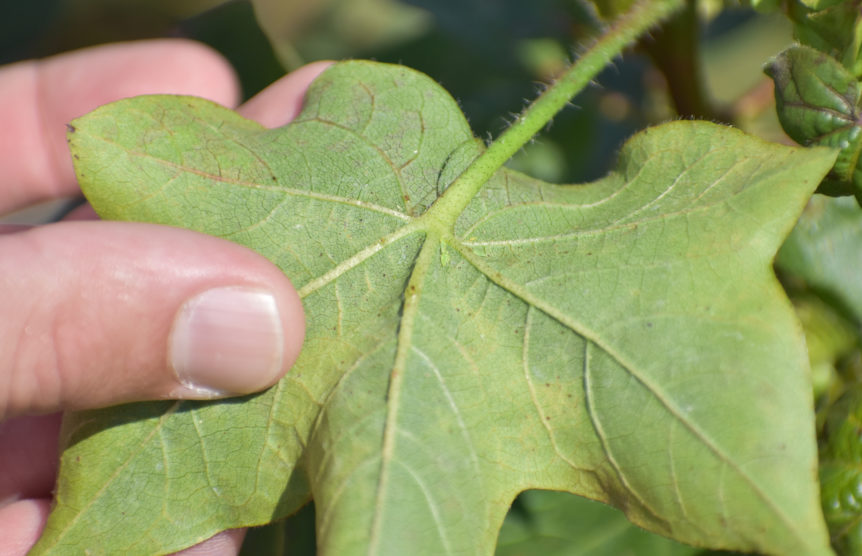
By Clint Thompson
Vegetable growers had a new insect to manage this year with the cotton jassid. If it shows up in early spring next year, though, that challenge will be amplified for the 2026 season, according to Stormy Sparks, University of Georgia Extension vegetable entomologist.
“The big question’s going to be what happens during the winter going into the spring? At worst, hopefully, it’s like whitefly where it overwinters, because it probably overwintered last year is what we’re assuming, but populations didn’t build up until fall,” Sparks said. “That’s kind of the best-case scenario at this point, I think. If it shows up early in the spring, and is a spring problem and becomes a year-round problem, that’s going to be ugly; and not just for vegetables, that’s going to be ugly for cotton.”
The cotton jassid feeds on the lower surface of cotton leaves, extracting the contents of cells. Symptoms include yellowing, reddening and then bronzing of leaves. The jassid is also extremely small, so it is likely that plant damage will be observed before the insects themselves. It is a pest of cotton, okra, eggplant and sunflowers.
Insecticide Sprays
The cotton jassid made its presence known this year, impacting cotton and certain vegetables like okra and eggplant. If it is not observed in the spring, then growers won’t have to worry about the jassid until they start worrying about whiteflies.
“If it’s a fall problem, and it’s where we’re already spraying for whitefly, a lot of the stuff we spray for whitefly controls the jassid. That’s why it wasn’t a huge problem for us this fall. We’re already spraying stuff that controls it,” Sparks said. “If it shows up in the spring when we’re not fighting whiteflies, then we’re going to see more problems I think.
“I don’t think there’s any doubt that cold weather’s going to knock them back. They’re not that cold tolerant, but the question is, ‘Is it going to wipe them out?’ I doubt it since they appeared to have overwintered last year, and we had snow on the ground for three days.”










